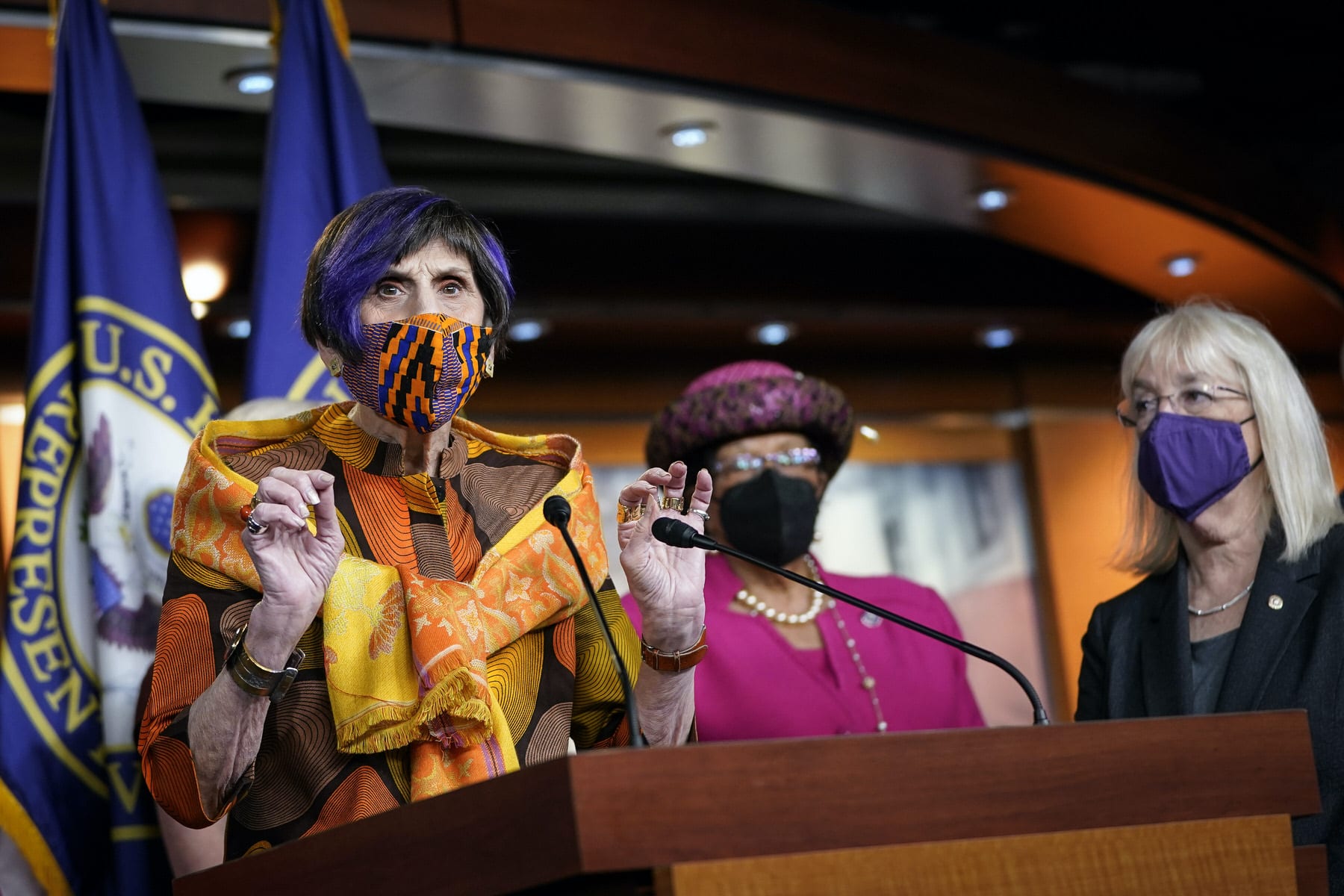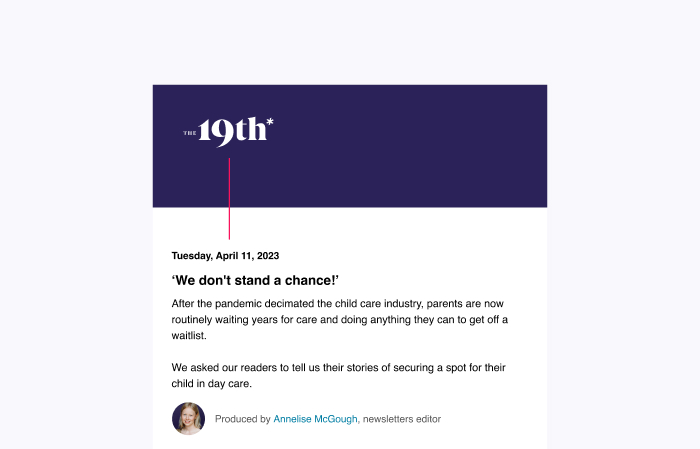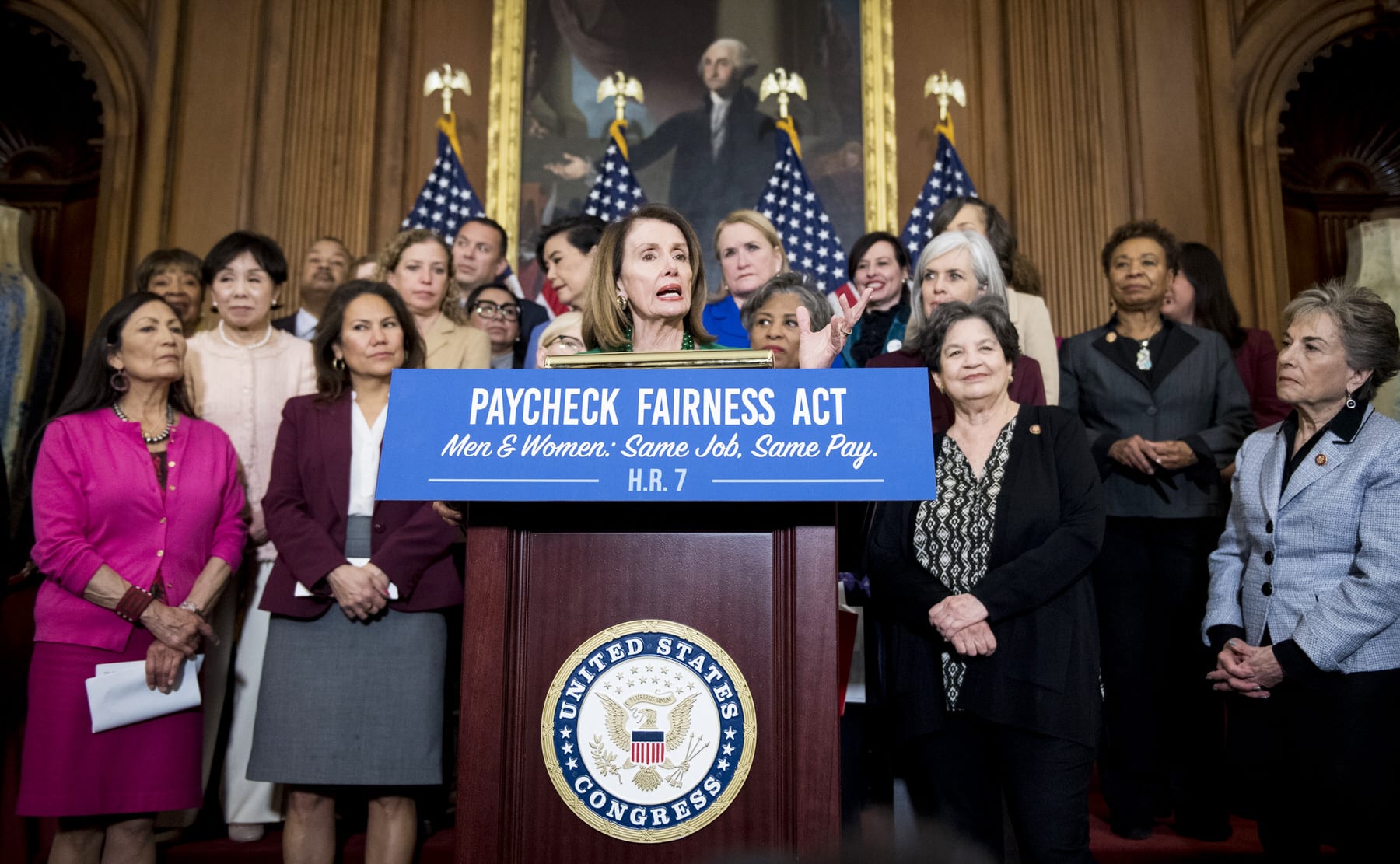
Advocates thought this might be the time, in light of the women’s recession, that a 24-year effort to pass additional protections for women in the workforce would pass. It failed to gain support from Republicans.

Economy and Child Care Reporter
2021-06-10 11:14 June 10, 2021A fourth attempt to close the wage gap by passing the Paycheck Fairness Act died in the Senate this week, quelling an opportunity to end loopholes in pay discrimination laws that — a year after the start of the women’s recession — advocates thought they finally had a chance to address.
The Paycheck Fairness Act was first introduced in 1997, but it has failed to gain traction from Republicans who have opposed the measure. It has passed the House four times, including this year with one Republican, Brian Fitzpatrick of Pennsylvania, voting with Democrats. As the legislation headed to the Senate, advocates hoped that the economic devastation of the past year would spur bipartisan support.
A decade of economic progress for women in the workforce was erased within three months at the start of the pandemic, when women lost jobs en masse after the low-wage fields they dominated eliminated positions. Then, as the year wore on, hundreds of thousands of mothers, who in a heterosexual relationship were more likely to earn less money, chose to leave work to care for children after child care options evaporated.
The 19th thanks our sponsors. Become one.
Polling ahead of the 2020 election indicated about 90 percent of women, across party lines, supported strengthening equal pay laws.
“We have just an extra need for this bill, so I think the hope was that given the very high levels of support across party lines [by voters] and across the country for this approach that it would gain more traction with Republicans this time around,” said Michelle McGrain, the director of congressional relations, economic justice at the National Partnership for Women & Families.
It didn’t. On Tuesday evening, Senate Republicans voted to block the bill from going to a vote, extending a filibuster that all but ensures the bill will not move forward this legislative session. The vote was 49-50 along party lines. New York Democrat Sen. Kirsten Gillibrand, who has championed the bill, was absent Tuesday, but her vote would not have changed the outcome: Democrats needed 60 votes in order to move the bill forward.
Sign up for more news and context delivered to your inbox, daily
It’s another delay in a decades-long effort to close the wage gap, which has the potential of widening after this recession. According to a study by economists at Northwestern University, past recessions have typically narrowed the gender pay gap because men were more likely to lose their jobs and return to work in lower positions after being out for an extended period of time. But the pandemic recession will have the opposite effect, widening the gap because it’s women, this time, who will be out of work longer than men.
The Paycheck Fairness Act sought to build on past legislation — the Equal Pay Act of 1963 and the Lilly Ledbetter Fair Pay Act of 2009 — to eliminate the gap. The bill would require employers to prove why a pay disparity exists, bar them from asking employees about their salary history and build in more transparency and avenues for recourse if workers feel their employers are paying them unfairly.
Advocates say those kinds of protections would help close the existing disparities between employees of different genders employed in the same positions, which has particularly impacted women of color. Women today earn about 82 cents for every $1 White men earn. Black women earn 63 cents, American Indian and Alaska Native women earn 60 cents, Latinas earn 55 cents and Asian American or Pacific Islander women earn 85 cents, though that average conceals starker disparities across ethnic groups. The bill doesn’t directly address nonbinary workers, but would likely affect them. A recent survey by Catalyst, a firm that does research on gender in the workplace, found that 22 percent of LGBTQ+ Americans said they were not paid equally or promoted at the same rates as their peers.
“Right now, an employer can brush aside reports of pay discrimination by saying things like, ‘He was a better negotiator,’ or, ‘They work in different buildings,’” Sen. Patty Murray, the Washington Democrat who has co-sponsored the bill for more than a decade, said on the Senate floor Tuesday. “And too often, a woman’s history of being paid less means she gets paid less in the future because her past salary can be used to determine her future salary, regardless of what her counterparts are making or her new responsibilities, and that has real consequences for women and their families.”
One of the other reasons for the persisting gender wage gap is the jobs workers are concentrated in. Women work in two-thirds of the 40 lowest paid jobs in the country, and men are concentrated in the highest earning fields, driving the gap in earnings.
Opponents argue that it’ll be difficult to close the gender wage gap because there are certain jobs women choose to go into that may be a better fit for them and their families. For that reason, Mark Perry, an economist and scholar at the conservative American Enterprise Institute who has written about the gender pay gap, called the gap a “statistical fairy tale.”
Murray said that argument is “offensive.”
“Basically what that is saying to women is because you have such important things going on in your life like taking care of your kids or elderly parents, you are willing to get paid less than the man who is doing the same job,” Murray told The 19th.
Economists who have studied the gender pay gap have said unequivocally that the issue goes beyond personal choice.
“Even when women seemingly do all the things that should result in equitable pay, there are long-held practices in American work life that leave women vulnerable to unequal pay,” said Michelle Holder, associate professor of economics at City University of New York, during a congressional hearing on the pay gap on Wednesday. “The gender wage gap has the largest absolute negative impact on the individual earnings of women of color.”

Marlene Kim, a professor of economics at the University of Massachusetts who has studied the gap for 30 years, said in her testimony that “subtle unconscious biases remain against women. Women with the same qualifications are less likely to be hired, trained, mentored, promoted and compensated at the same rate as men.”
Republicans argue the Paycheck Fairness Act is not the policy to narrow any existing gaps, and would instead increase litigation against employers. Senate Minority Leader Mitch McConnell called it “essentially a giveaway to the plaintiffs’ lawyers in America.”
But McGrain said that would only be an issue for employers trying to be less transparent about pay in the workforce.
“If you don’t break the law, then you’re not going to get sued,” she said.
Instead, Republicans support the Wage Equity Act, a bill proposed by Rep. Elise Stefanik, of New York, that would encourage employers to take on voluntary pay analyses and instruct the Government Accountability Office to study the reasons that hold women back from reaching leadership positions. The bill would also protect workers who discuss their pay with their colleagues — but equip employers with the ability to set the parameters, such as time and place, for those discussions. It would also protect employers who have salary expectation conversations with prospective employees.
“The Democrats’ alternative legislation would pave the way for frivolous lawsuits and unnecessary burdens on businesses, including those owned and operated by women themselves,” Stefanik said in a statement when she reintroduced the bill this year in the House. The bill has 55 Republican cosponsors in the House but hasn’t been introduced in the Senate.
Rep. Rosa DeLauro, the House sponsor of the Paycheck Fairness Act since 1997, said in a statement to The 19th that “Representative Stefanik’s Wage Equity Act does exactly what the Paycheck Fairness Act has been fighting against for years — it claims to offer protections that in reality would create loopholes that give a wink and a nod to discrimination. The bill erodes existing protections and offers empty protections.”
“We have seen this trick before,” DeLauro said, “and it does nothing to actually close the wage gap.”
DeLauro said she is committed to working with the Biden administration to find “other avenues” for the Paycheck Fairness Act.
In a statement Tuesday night, Murray also said she would keep pushing, as well.
Tuesday’s vote, Murray said, “is only going to motivate women across the country to fight harder to get this bill done. And I’m one of them.”
In lieu of a federal policy, states have stepped in to provide some of the protections included in the Paycheck Fairness Act. In the past several years, 19 states, Washington, D.C., Puerto Rico and 20 localities have passed salary history bans, which cause workers to carry existing inequalities from job to job. Other states have passed laws on pay transparency or required employers to collect and report pay data.
But getting the law to pass at the federal level seems to be stalled, unless the Senate eliminates the filibuster, allowing Democrats to pass the law without needing 10 Republican votes. Those efforts also appear to be dead.
“A federal law is really the way to make sure that every single person across the country has all of the protections, not some of them, or even none of them depending on where they live,” McGrain said. “And when there’s a federal law, it always increases people’s awareness of the issue overall.”